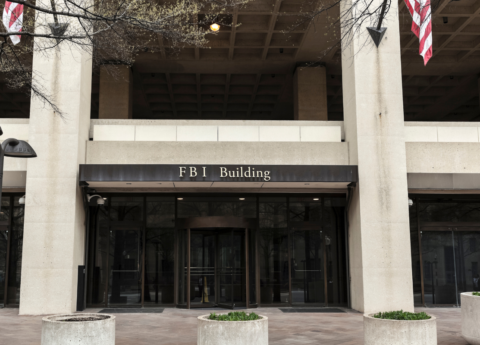If Kentucky were a country, it would be the seventh most incarcerated place in the world – with more than 21,000 people held in county jails, 65% of which are over capacity, and more than 10,400 Kentuckians serving sentences in state prisons.
In the 2023 legislative session, lawmakers made some positive moves to begin addressing this problem by embracing harm reduction and legalizing medical cannabis. But even with that progress, the legislature once again passed a number of bills that will continue the state’s harmful incarceration trends.
Several bills increase felony penalties, while others broadly legalize medical cannabis and sports betting
This year, the legislature passed five bills that either create new felony offenses or increase criminal penalties for existing felonies and two that reduce penalties. That continues the trend of the previous 11 years, which comes after the passage of a significant criminal justice reform bill in 2011 intended to reduce the state’s high incarceration levels. Since that time and counting the most recent session, the General Assembly has enacted 76 laws increasing incarceration and only 14 reducing it.
Among the 2023 bills that create new felony offenses or increase felony penalties are Senate Bill (SB) 9, which establishes “hazing” as a separate criminal offense (where currently the same conduct is charged as wanton endangerment); House Bill (HB) 249, expanding who is eligible for the death penalty in Kentucky; HB 262, creating a new crime of vehicular homicide (where the same conduct is already charged as wanton murder); and HB 302, making it a felony for those with previous felony convictions to attempt to vote.
Two additional bills broadly legalized activities that were previously illegal – sports betting (SB 551) and cannabis possession, distribution and cultivation for the treatment of certain medical conditions (SB 47). While sports betting was legalized, the bill also created new felony offenses related to the regulation of these activities, which will likely apply to a fairly limited number of people.
Lawmakers often focus on increased criminal penalties as a way to address a perceived increase in crime – regardless of what the data actually shows, or what research has shown about whether harsher criminal penalties actually work.
High profile crimes, though often tragic, do not change the underlying data or broader trends, which indicate some decreases in crime – including in the most recent annual report on crime from the Kentucky State Police.
These incidents also do not change the reality that increasing criminal penalties generally does not deter crime or make the public safer. Research shows increasing incarceration has minimal impact on reducing crime, and does little to improve public safety, all while costing our communities millions of dollars and hurting those we lock up and their families. More effective ways of improving public safety include investing in communities with affordable education and housing, accessible health care, and supportive services such as mental health and substance abuse treatment.
Progress made in drug policy as well as juvenile expungement
In terms of decreasing misdemeanor criminal penalties, SB 47 does so by legalizing medical cannabis. While the law does not go into effect until 2025, Kentuckians living with a specific list of illnesses will soon be able to legally use cannabis for treatment. It must be prescribed by a doctor, cannot be smoked and the bill sets out possession limits for both patients and caregivers.
Patients and caregivers who are approved to possess medical cannabis will no longer face criminal prosecution for doing so. Previously, they could be charged with a misdemeanor carrying 45 days in jail, or a fine up to $500 for possession. In addition to the fine and potential sentence, a possession charge can come with a host of other collateral consequences such as court costs, loss of employment opportunities and immigration implications.
Legalizing medical cannabis is a great first step for Kentucky, but is one that needs to be built upon in the future, including with the potential of full cannabis legalization, which would have a much greater impact on reducing the number of people who become entangled in the state’s criminal legal system.
Another bill decreasing misdemeanor criminal penalties is HB 353, which decriminalized the possession of fentanyl testing strips. These strips were previously considered drug paraphernalia, a Class A misdemeanor. Now that possession of the strips is legal, providers can distribute them without fear of prosecution, allowing people who use drugs to avoid fentanyl and likely reducing overdose deaths in the state.
HB 369 was another positive. The bill amended the state’s expungement law, expanding the types of offenses that juveniles can have expunged to include all status offenses, misdemeanors and felonies. This is a needed change, especially since many juvenile records will now be public as a result of HB 3. The bill also expands expungement possibilities for adults by allowing expungement of more than one felony. Access to expungement can help reduce a person’s likelihood of recidivating by opening up more education, training, employment and housing opportunities.
Changes made to juvenile justice will result in more kids in detention, as well as more funding for staff
The General Assembly also made changes to the juvenile system that significantly increase consequences for youth who become system involved. The legislation was a response to a perceived increase in juvenile crime that is not grounded in actual data, which tells a much different story. And long term, these policy changes will likely increase kids’ chances of incarceration as adults.
HB 3 introduced mandatory detention for kids charged with violent offenses, opened juvenile records to the public and appropriated millions for the reopening and renovation of the Jefferson County Youth Center (JCYC) in downtown Louisville.
The most concerning part of the law requires mandatory 48-hour detention for children charged with violent offenses. Judges already have the ability to detain such kids, and they are almost always detained when law enforcement requests it. This provision will not take effect until July 2024, but will significantly increase the number of children incarcerated, with hundreds more detained each year. Research shows that even short-term detention is incredibly harmful to kids, and is the number one predictor of recidivism – more so than parental relationship, membership in a gang or carrying a weapon.
HB 3 also removes confidentiality of juvenile records for children who have been adjudicated for or admitted to violent offenses. Prior to HB 3, juvenile records were generally confidential, with a few exceptions. Now, records will be public for three years, with the opportunity to again become confidential if the child is not convicted of additional offenses in that time period. While public, the access of juvenile records could negatively impact housing, school and job opportunities for kids. Public records hinder kids from moving on from mistakes they made as children, and increase the chances they will commit crimes as adults.
In addition to increasing detention and other criminal legal consequences, the General Assembly also appropriated funding for the juvenile justice system to address staffing shortages, and for reopening the JCYC so Louisville kids can be closer to their families and resources. SB 162 appropriates some funding for mental health services for detained children and salary increases for youth workers. While this will likely improve the safety of kids in detention, it will not improve public safety or help kids turn their lives around. The bill also contains harmful provisions like allowing youth workers to carry pepper spray and tasers to be used on children.
Proposed changes to the Persistent Felony Offender (PFO) law didn’t move after initially passing committee
SB 225, which would address Kentucky’s harsh Persistent Felony Offender (PFO) law, did not pass this year but has momentum to come up in future legislative sessions. It passed the Senate Judiciary Committee 8-2, but did not move forward after a second reading on the Senate floor.
Prosecutors use the law to enhance sentences for people with recent felony convictions who are facing new felony charges. When applied, PFO enhancement results in substantially lengthier sentences and adversely impacts plea bargaining and parole eligibility.
Reforming PFO would substantially reduce incarceration in Kentucky. In 2021, more than 3,000 Kentuckians were serving PFO-enhanced sentences, and 27% were serving for a Class D felony, which is the lowest-level felony and includes drug-use crimes. A PFO sentence can increase a Class D felony sentence from one to five years to an average of 12 years.
SB 225 would have enabled juries to reject application of PFO during sentencing, allowed those serving non-violent PFO-enhanced sentences the same parole eligibility as non-PFO offenders and prohibited PFO enhancements on simple drug possession convictions. These changes would reduce incarceration in Kentucky and cut back on harmfully long sentences that can result in financial instability, poorer mental health, increased substance use and difficulty acquiring employment and housing.
When it comes to incarceration in Kentucky, much stronger action is needed to reverse recent trends and keep already-high incarceration levels from continuing to rise. The General Assembly made progress in a couple of promising areas in 2023, but must do more to reverse course starting in 2024.




